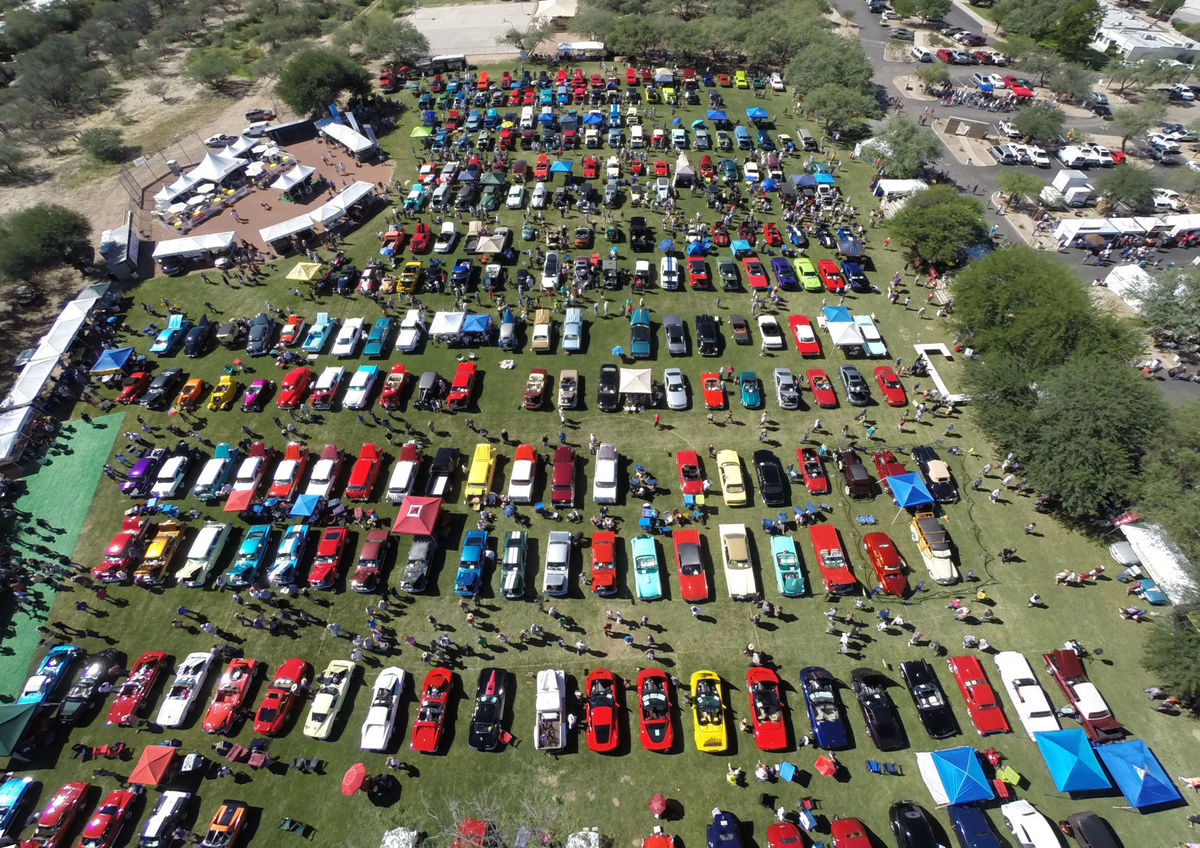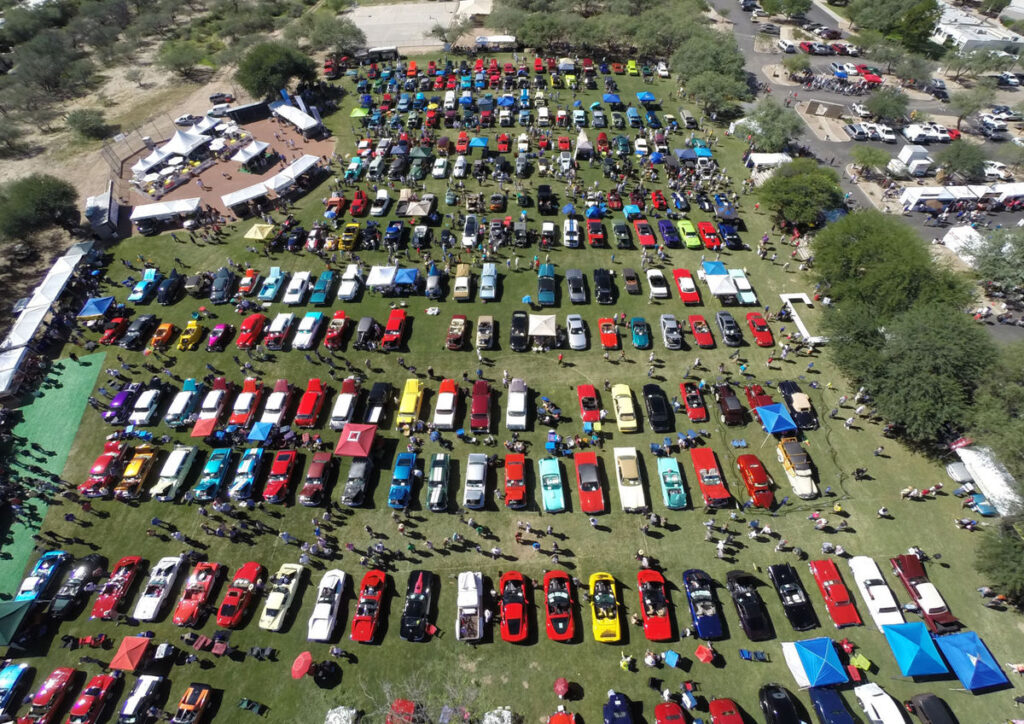During the past decade, the Rotary Club of Tucson (Arizona, US — D 5500) has raised more than $1 million for local charities through the annual Tucson Classics Car Show.

“This is a great event and this year we are talking about the three fives: With the purchase of a $5 ticket for admission — which makes it very affordable for families — you also get the opportunity to win one of five significant prizes, the first of which is your choice of a 2008 C-6 Corvette convertible or $15,000 cash. You are also helping five local nonprofits,” said Jim Murphy, chairman of the October 21 fundraiser on the campus of The Gregory School.
Murphy said the club hopes to beat last year’s record proceeds of $209,000 to share among Make Way for Books, Joint Technical Education District of Pima County, Gap Ministries, CareGiver Training Institute of Tucson and the YWCA Women’s Impact Fund.
Make Way for Books, which is on a mission to give all children a chance to read and succeed by working with children from birth to age 5 and their families, will receive 40 per cent of the proceeds; Pima JTED and Gap Ministries Culinary Training Programme will each receive 20 per cent, and the remainder will benefit the other nonprofits.
“One of our major focuses nationally and internationally is literacy. These are all fantastic programmes that fit with Rotary International’s overall vision to develop literacy, promote education and to advance understanding, goodwill and peace throughout the world,” said Murphy.
Murphy said in addition to raising funds, the club hopes to promote awareness about organisations such as Pima JTED, which offers advanced career and technical education programmes across 13 member school districts in Pima County.
JTED serves 15,787 students through 16 central campus and satellite locations that offer a wide range of disciplines in business, arts and design; computers and media; health science; hospitality, education and human services; industrial technologies; public service; and science and engineering.
The 65 programmes range from automotive and aviation technologies to cosmetology, culinary arts, licensed nursing assistant and fire services.
The curricula incorporate cutting-edge technology and hands-on experience designed to prepare students for the future that may or may not include post-secondary education, according to Greg D’Anna, director of public relations for Pima JTED.
“Certainly the majority of jobs coming online in this country don’t require a four-year college degree, but we like to say that we get students both college and career-ready,” he said.
D’Anna said Pima JTED is growing increasingly relevant in light of the need for skilled workers and that its programmes can provide excellent options for students who want to begin work immediately without incurring college debt.
“Research is showing that we have a skills gap in this country. Over 50 per cent of the skilled workforce is aging out and getting ready to retire, and we need people to fill those roles so we can rebuild the country’s infrastructure,” said D’Anna.
Grant funds from the Rotary Club of Tucson will support work uniforms, fees and necessary supplies to help Pima JTED students who are otherwise unable to afford to complete the programmes.
He said many of the students live at or below the federal poverty level.
“Before the JTED fund, it was sad when we saw students who had to drop out of a programme because they couldn’t afford the equipment they needed. The JTED fund is critical to helping these students complete the programmes,” he said.
D’Anna said the Rotary Club partnership has provided a good opportunity for students to interact with the businesses and professionals in the community.
More than 80 JTED students will work alongside volunteers at the Tucson Classics Car Show; the students will help with parking, concessions, emergency medical assistance and other activities.
“The students have the opportunity to interact with the public and feel that they are doing something to give back in exchange for the gift that has come our way.”
“It is the very best of philanthropy when someone helps themselves versus just giving over a cheque blankly — we are working together in a way that is mutually beneficial,” D’Anna said.
Source: tucson.com






